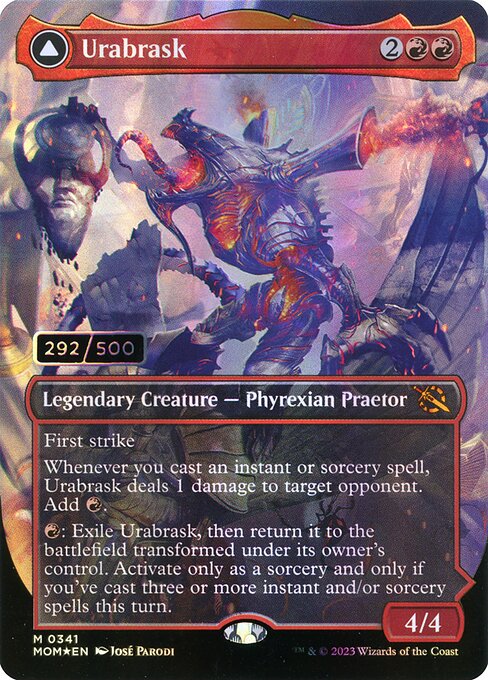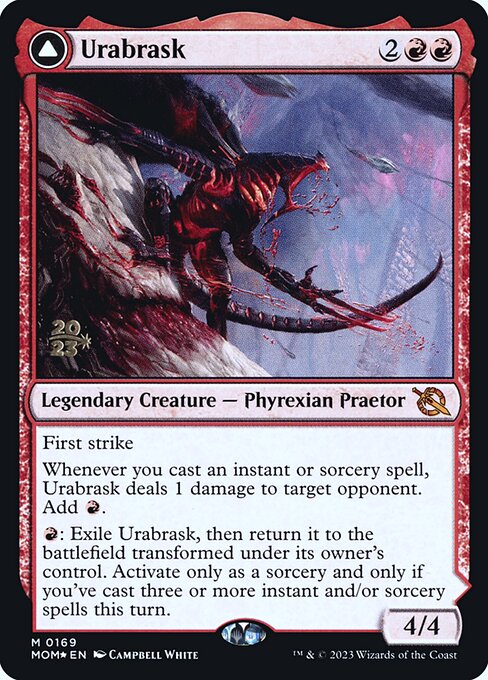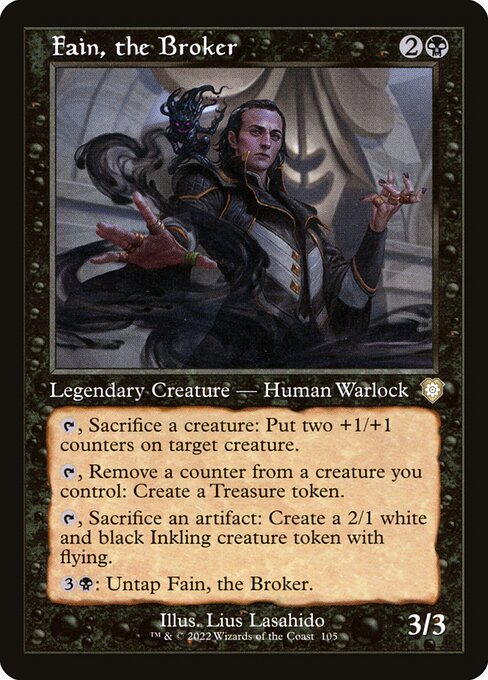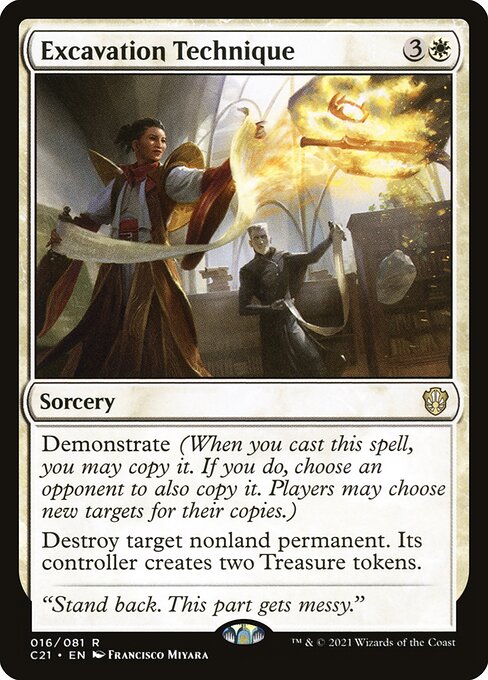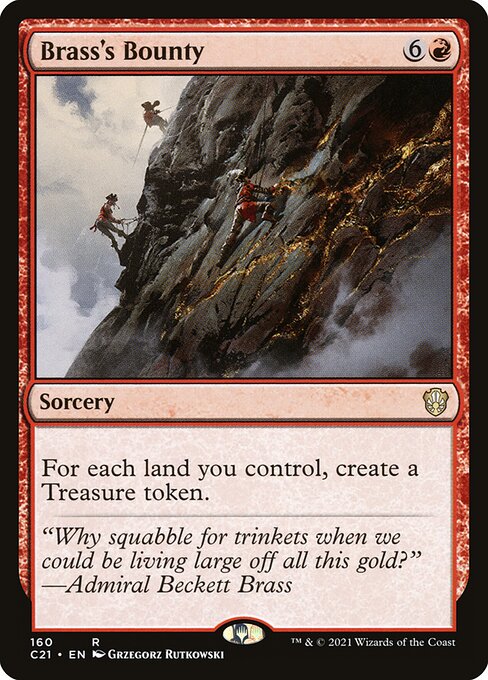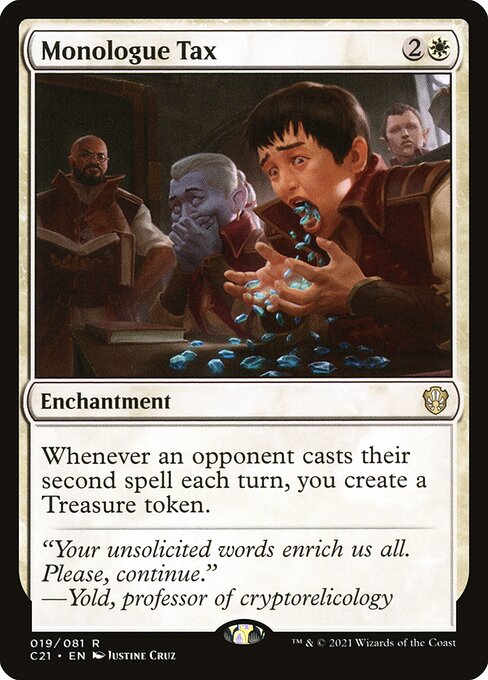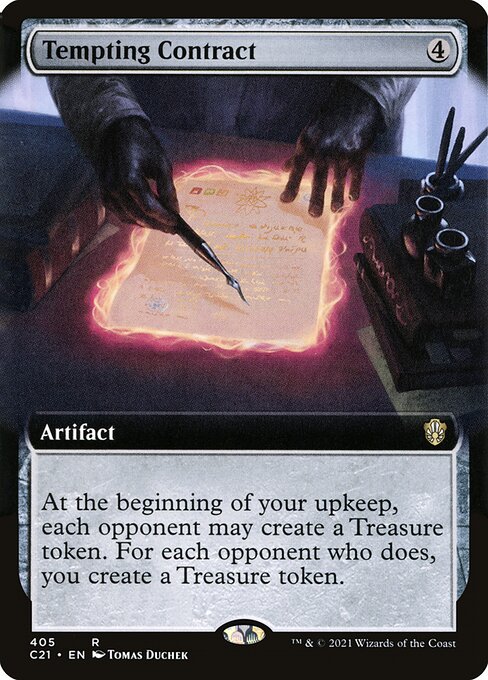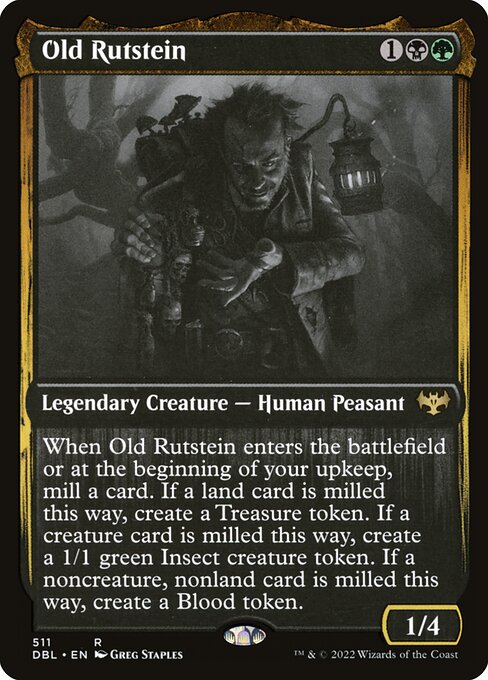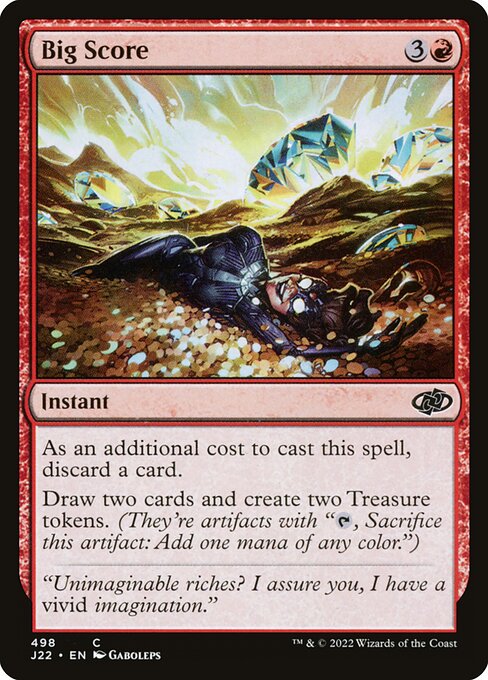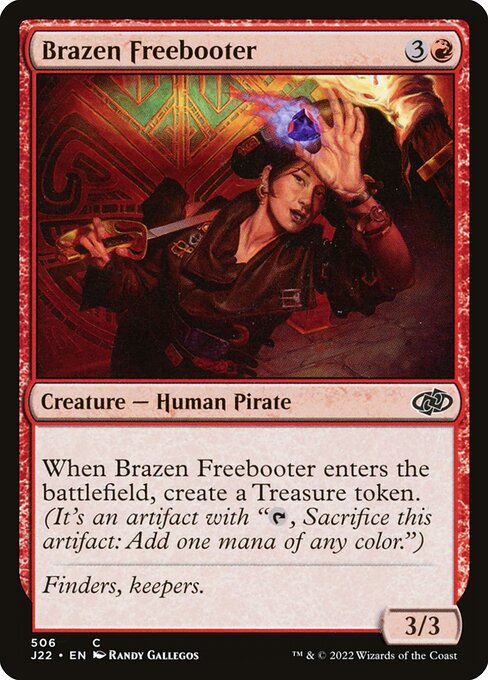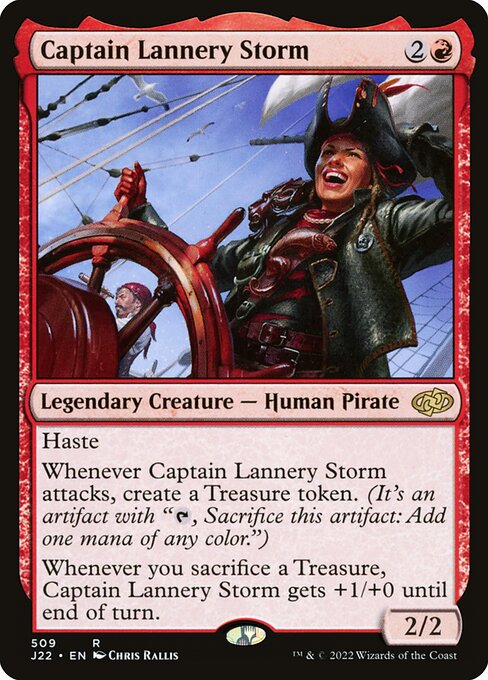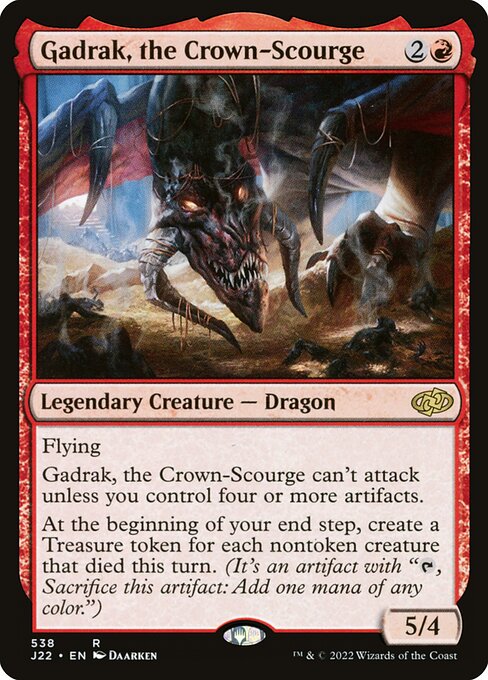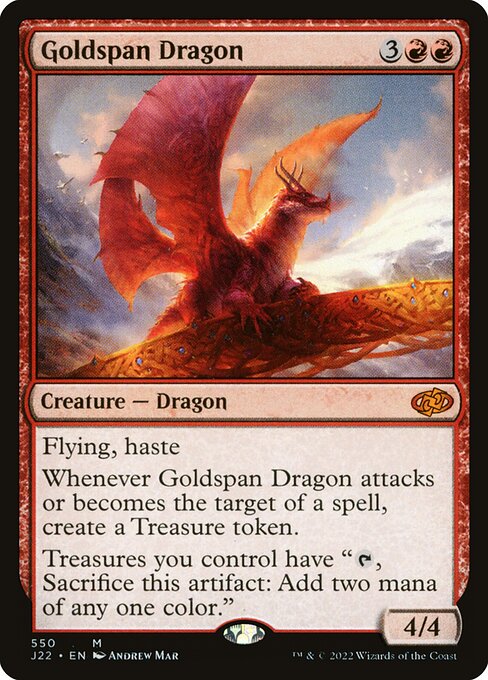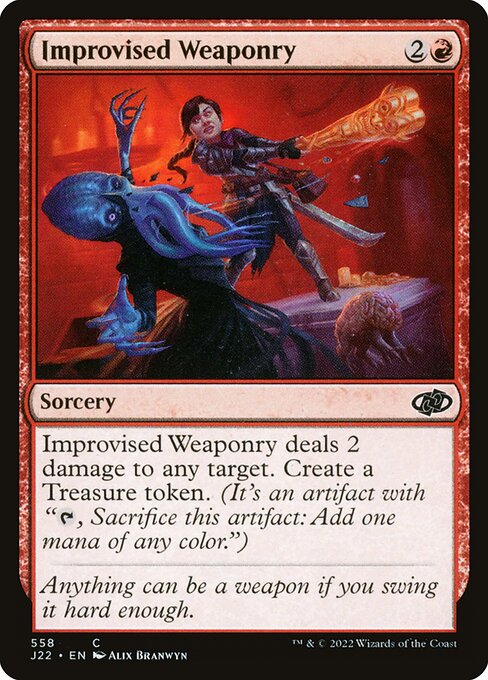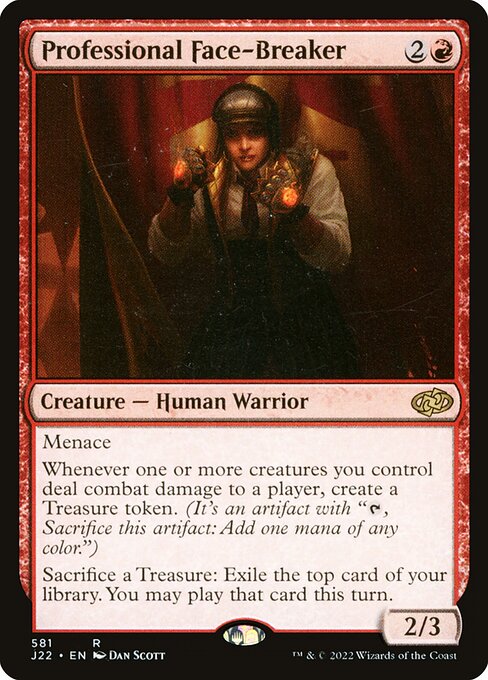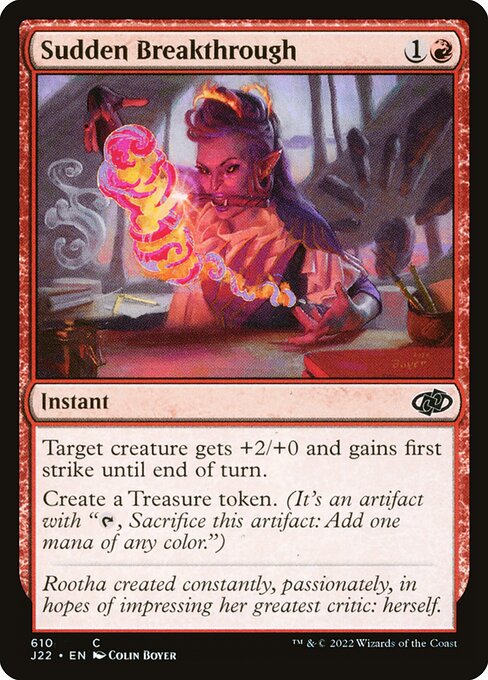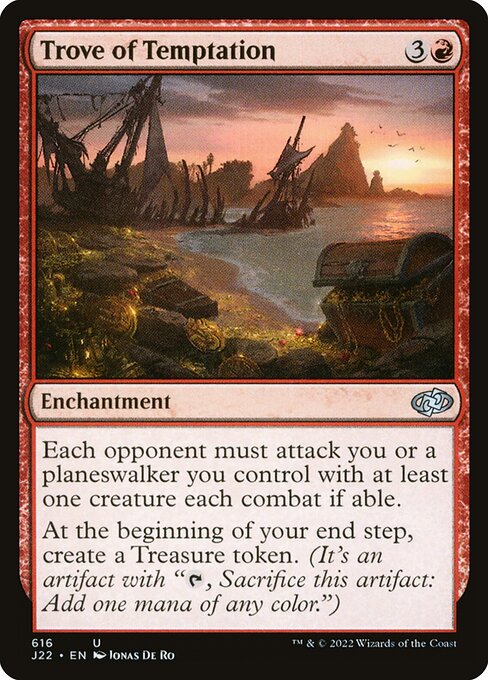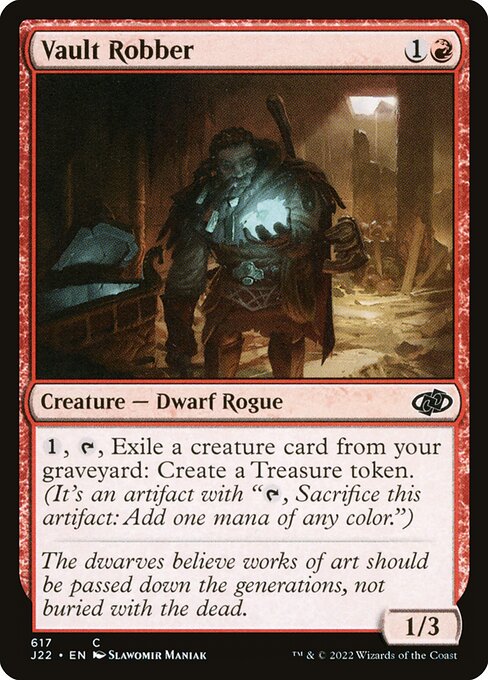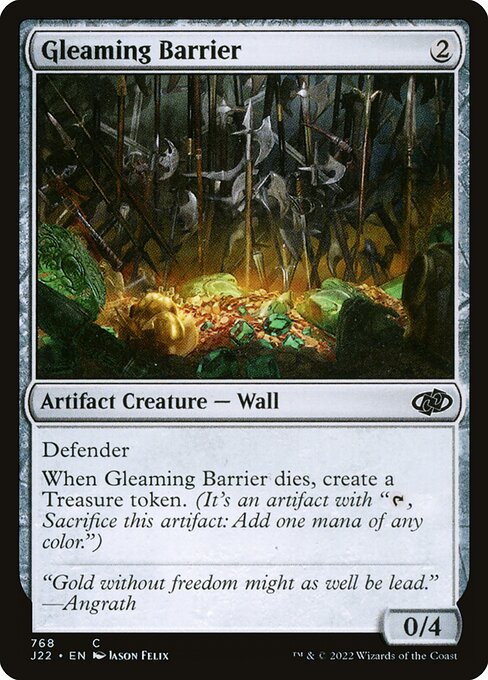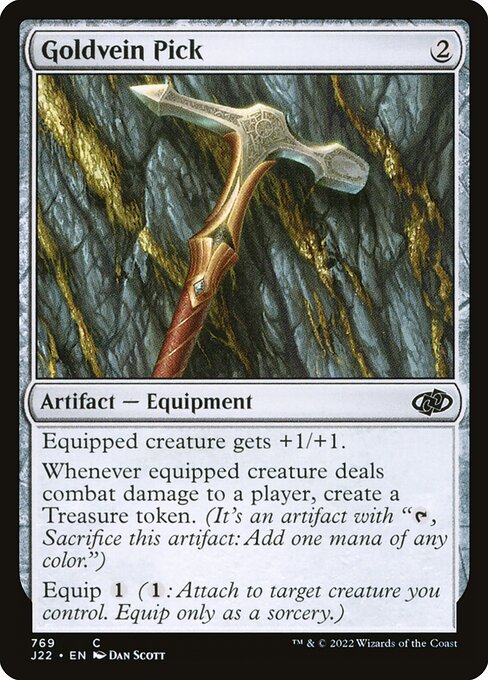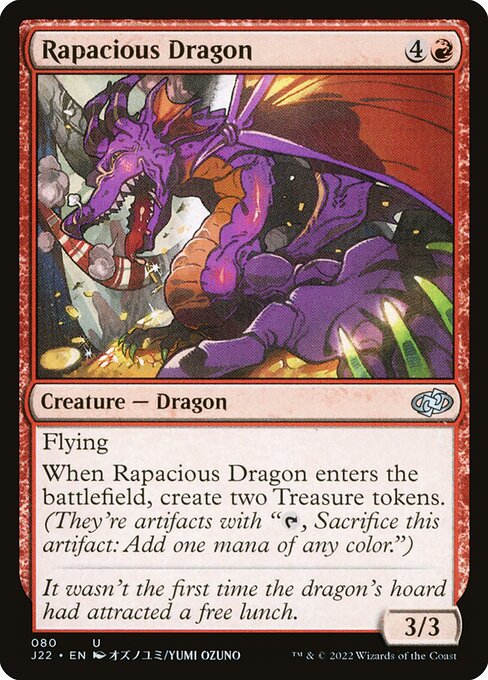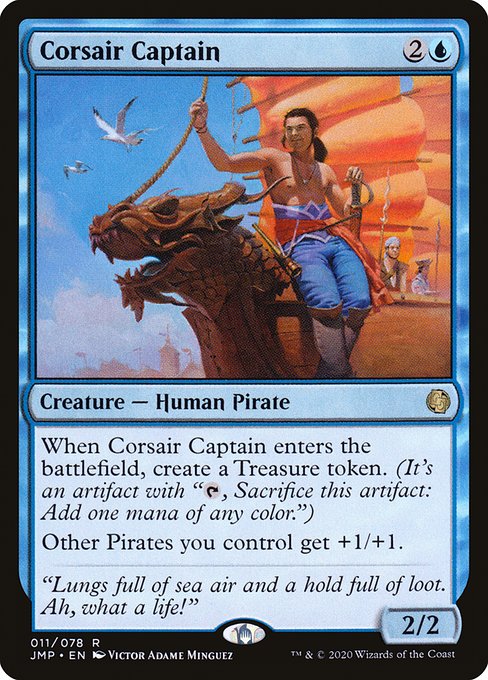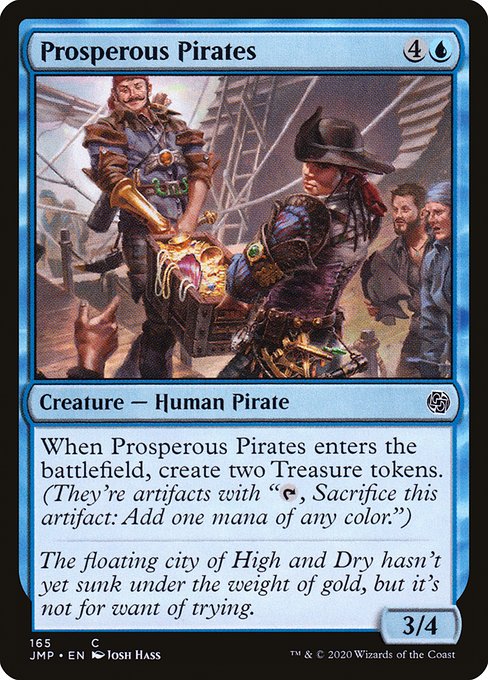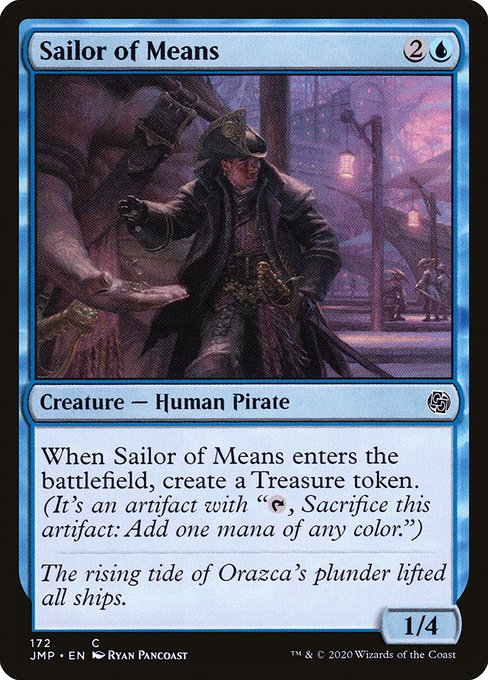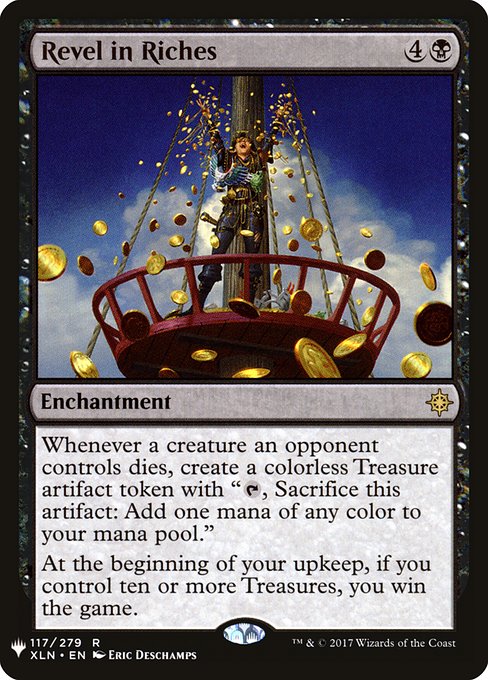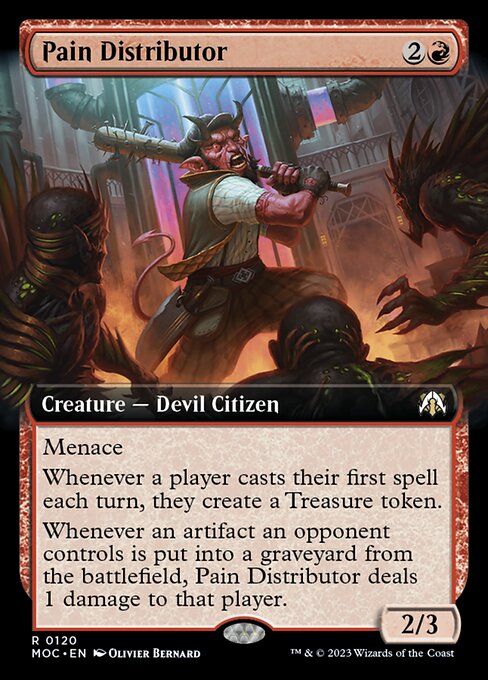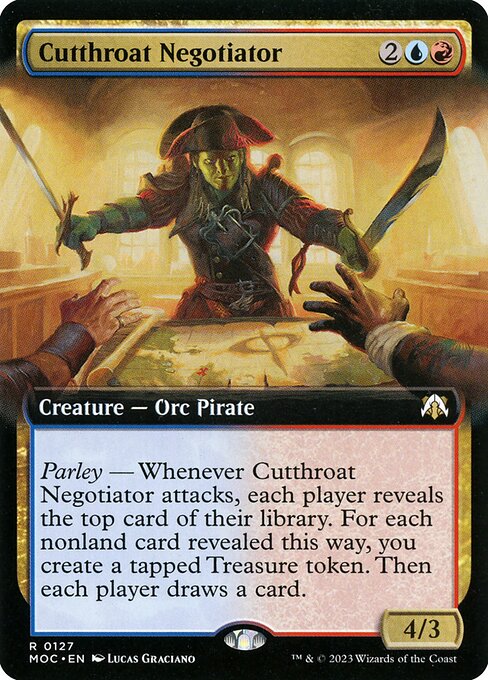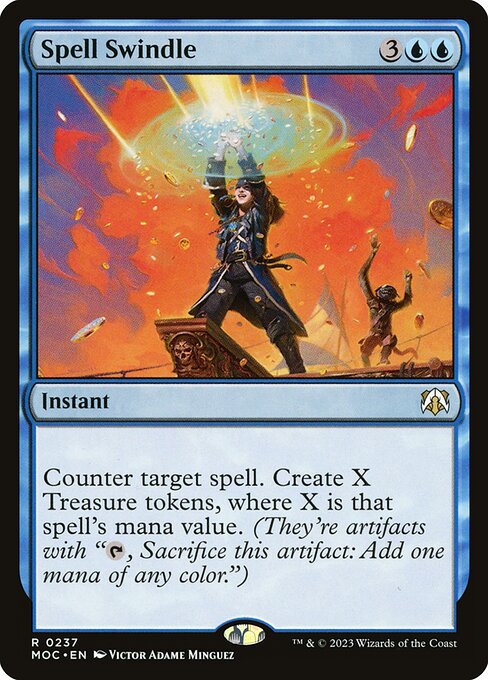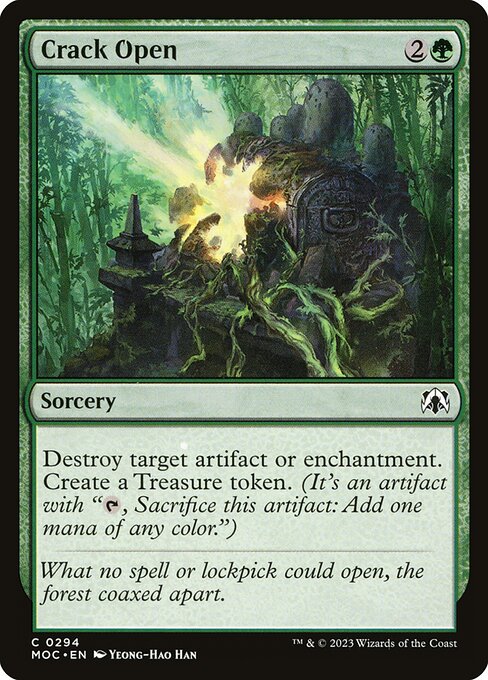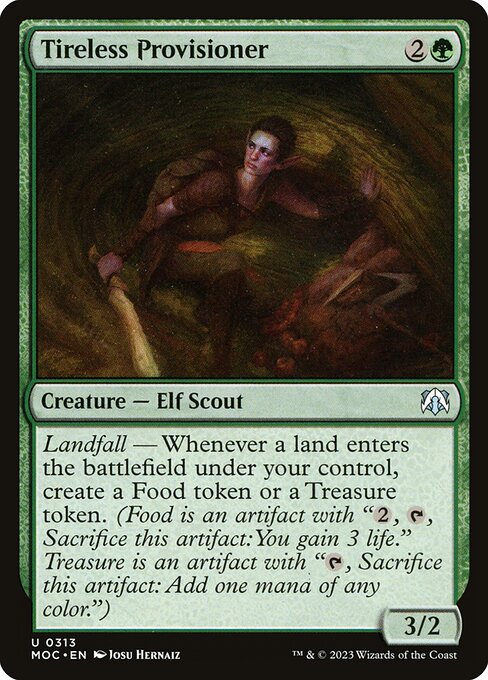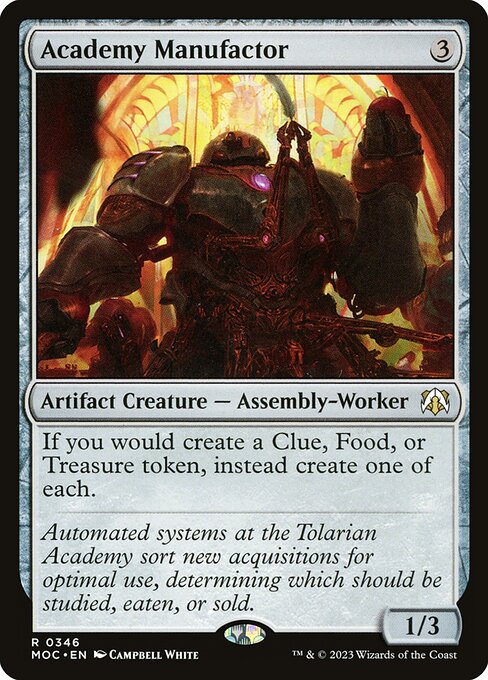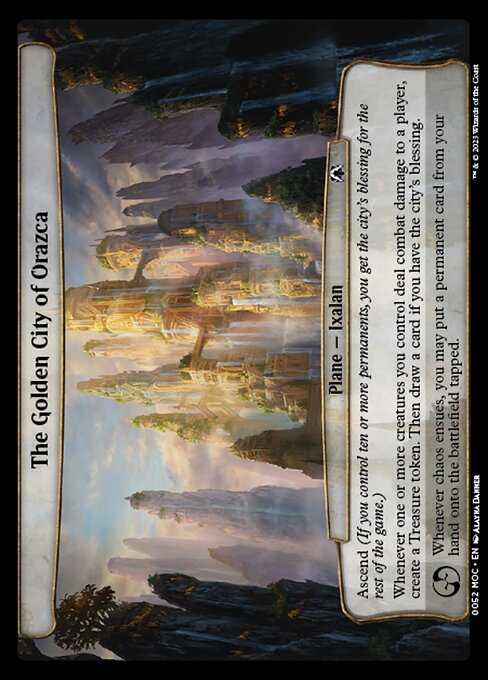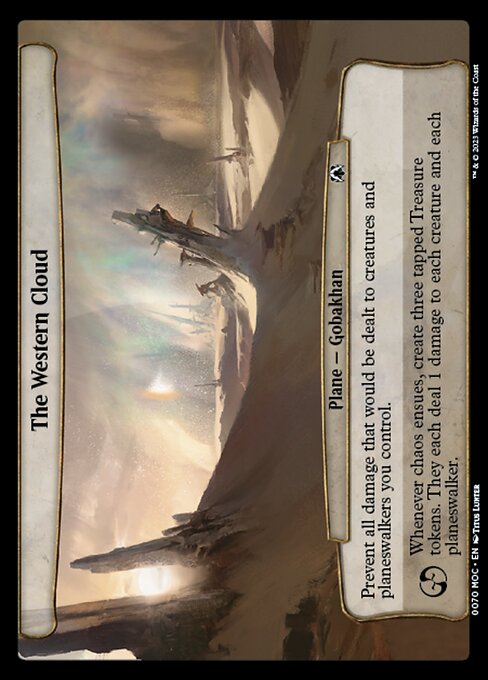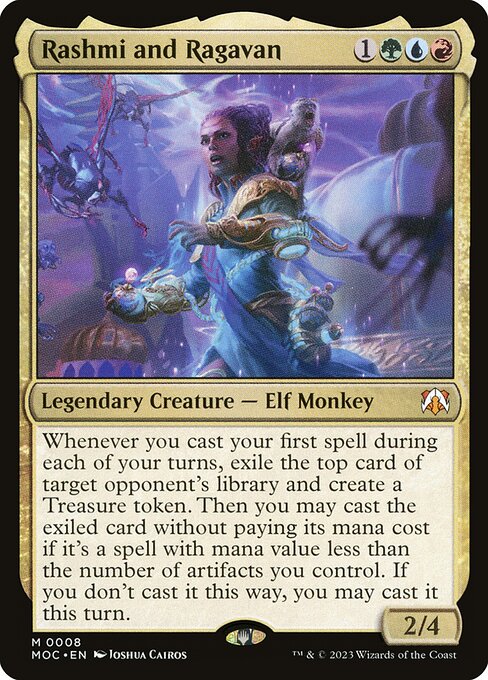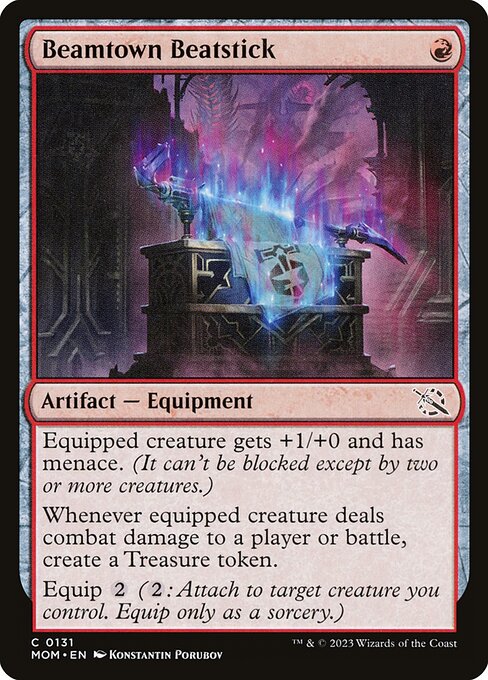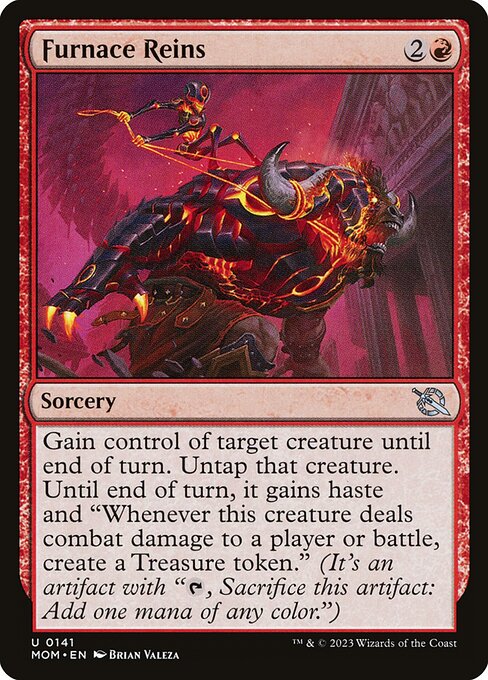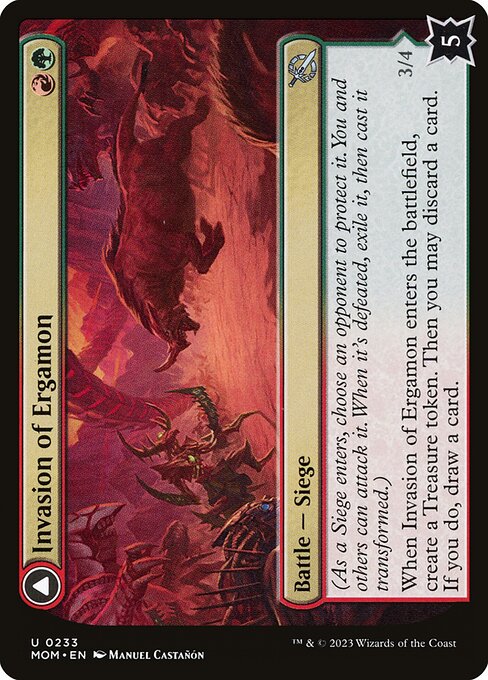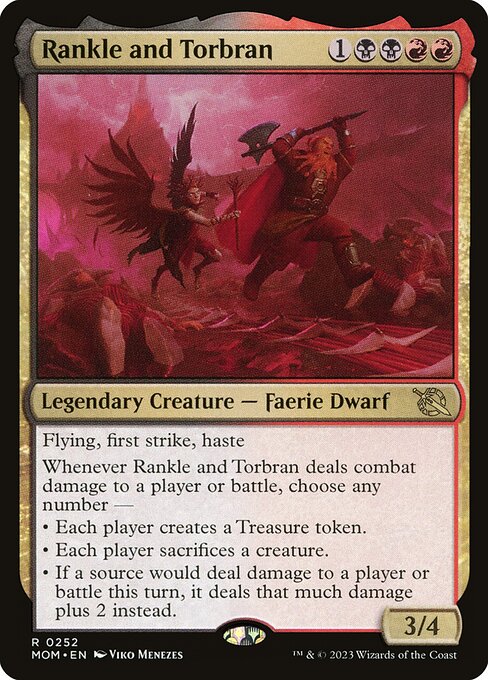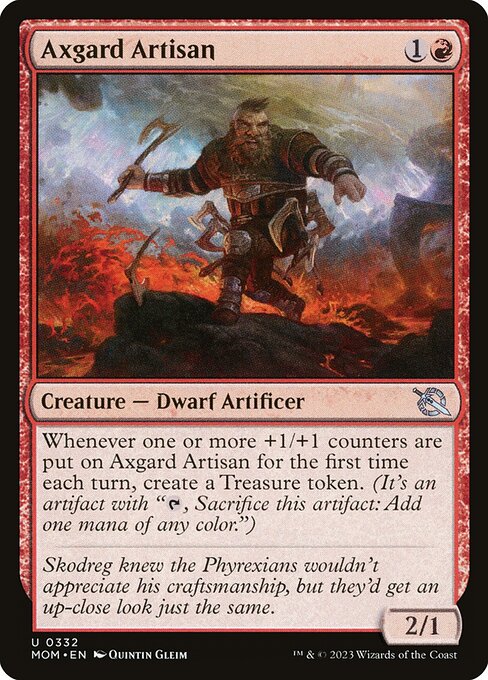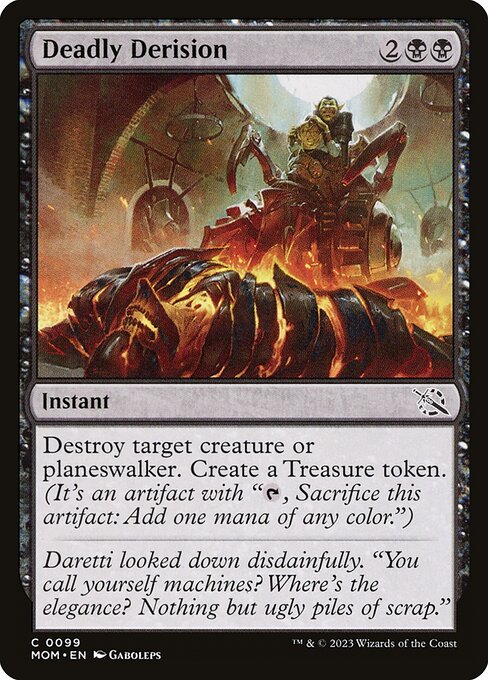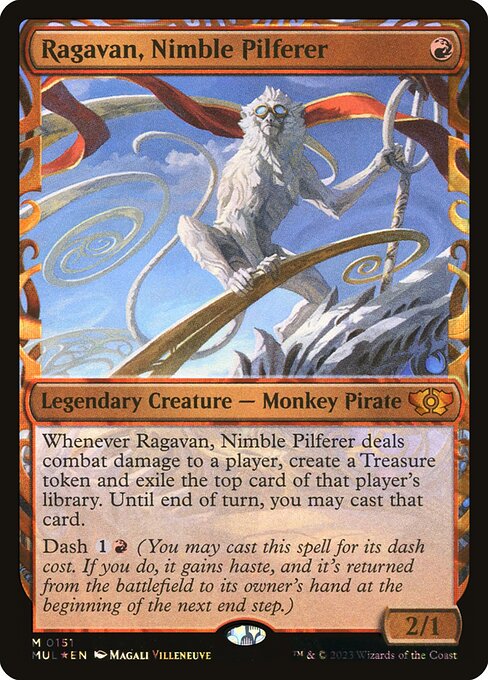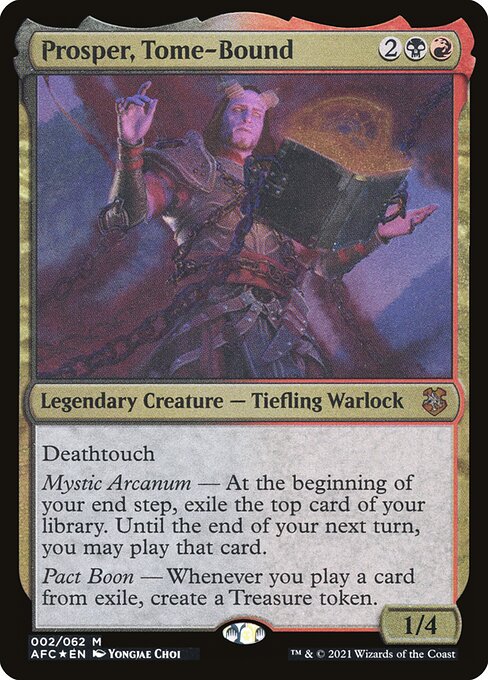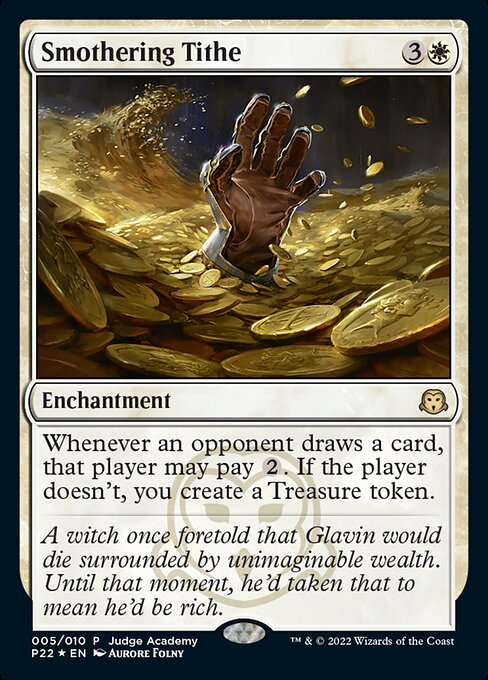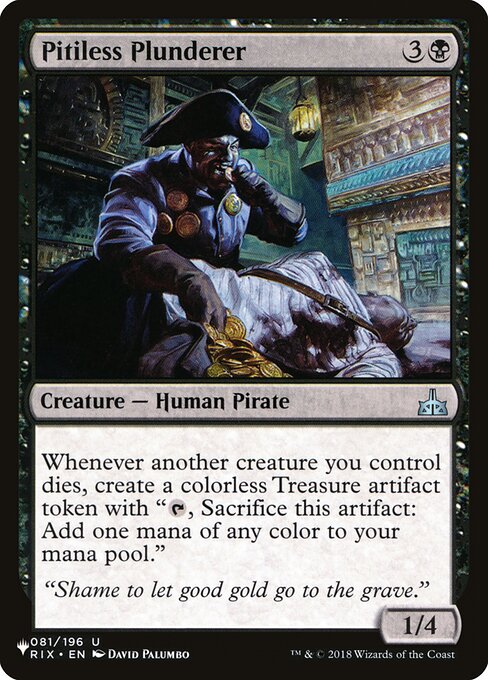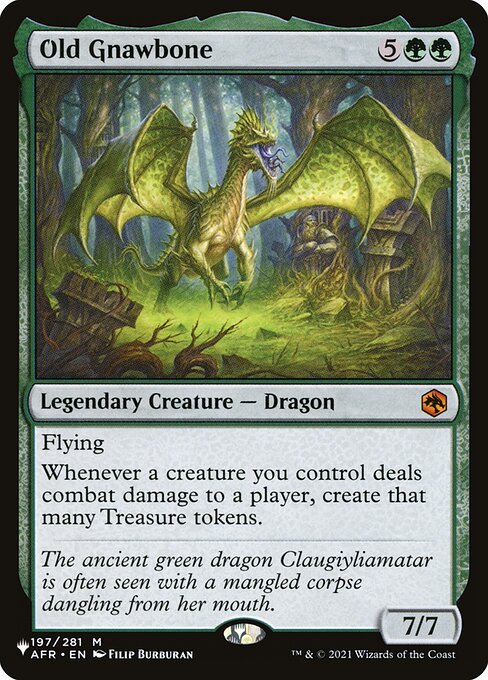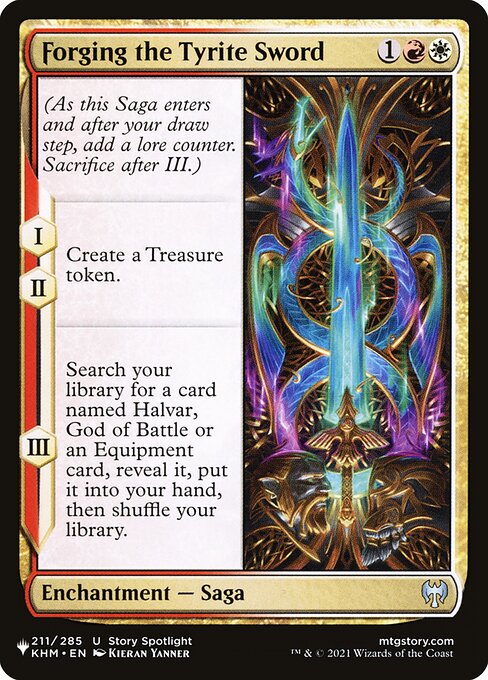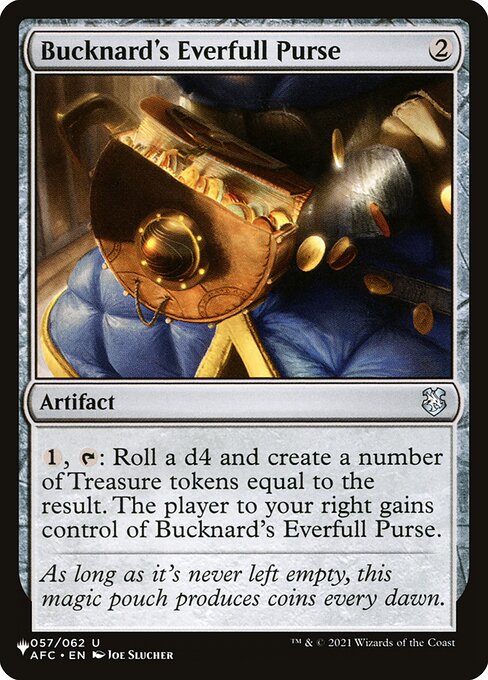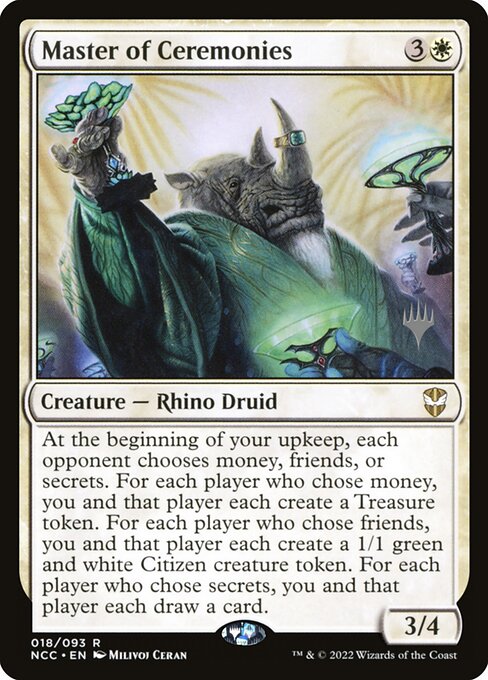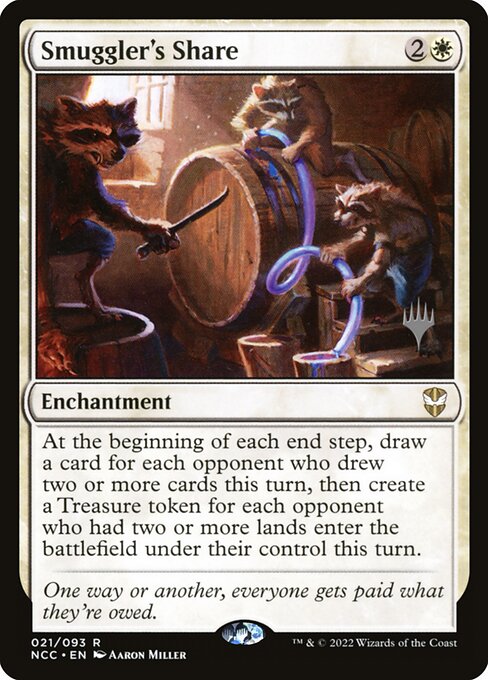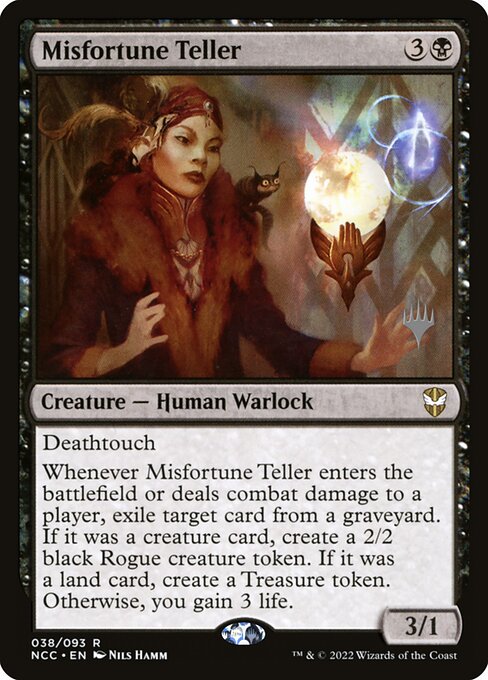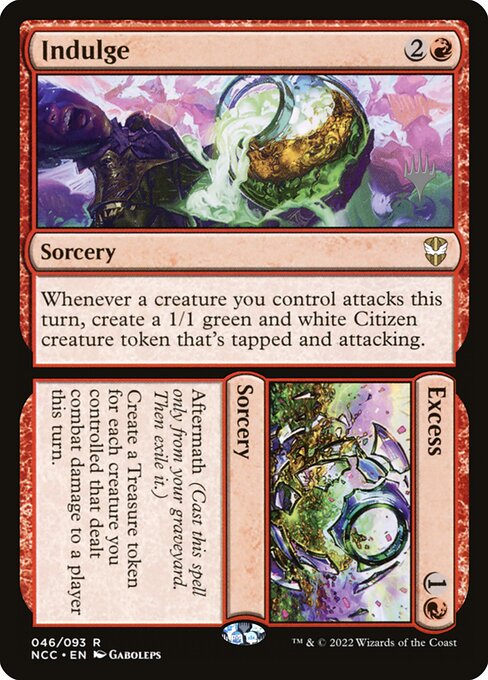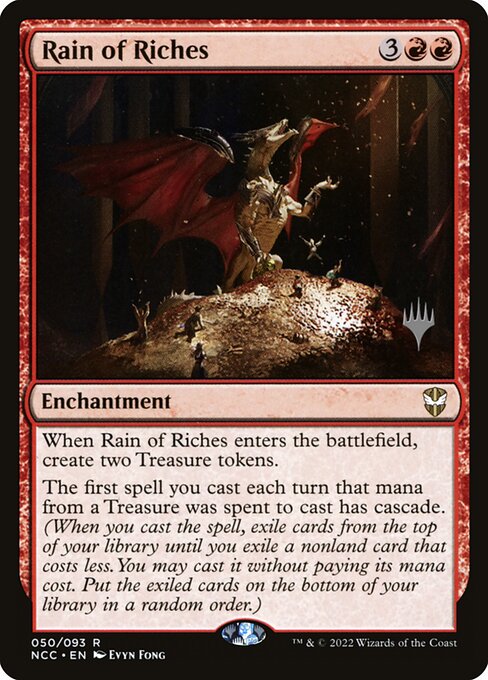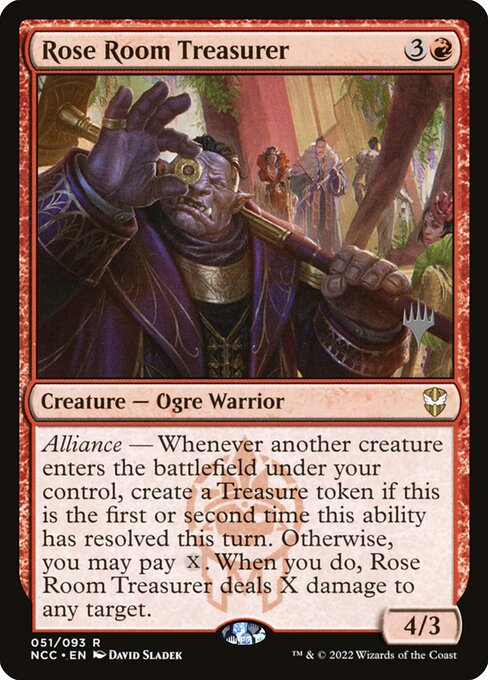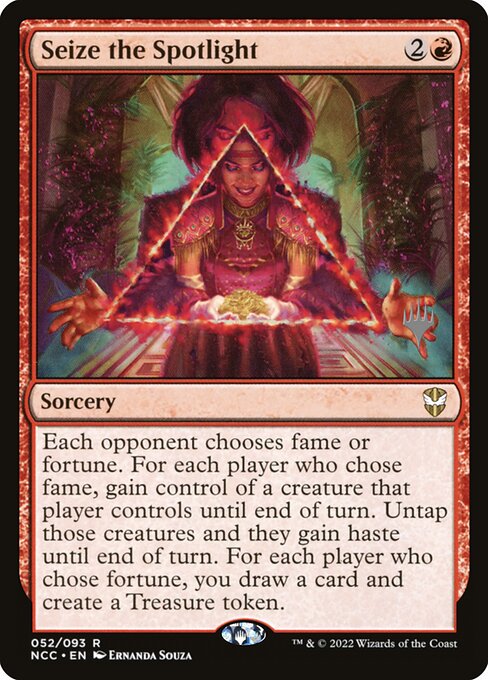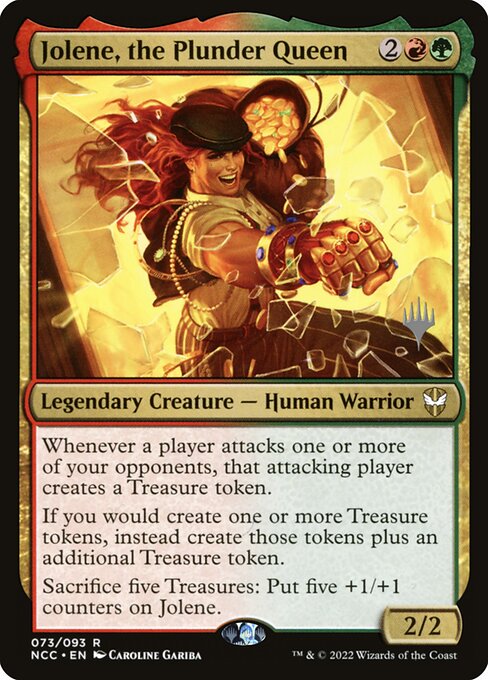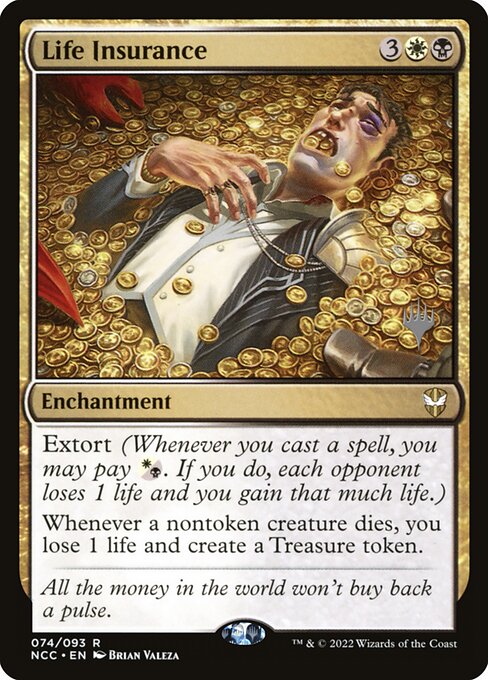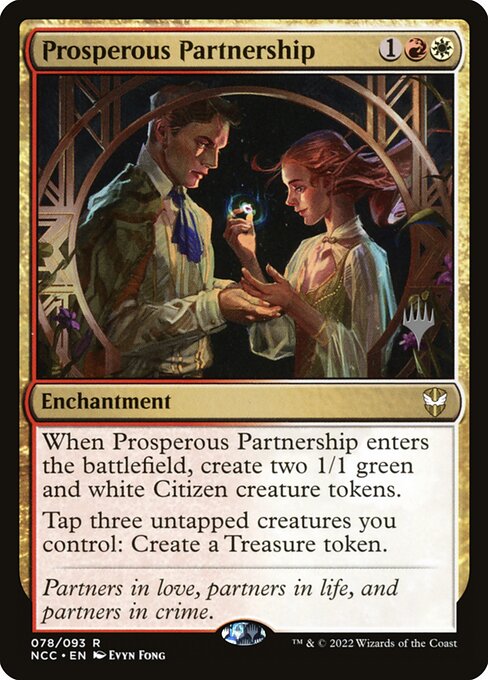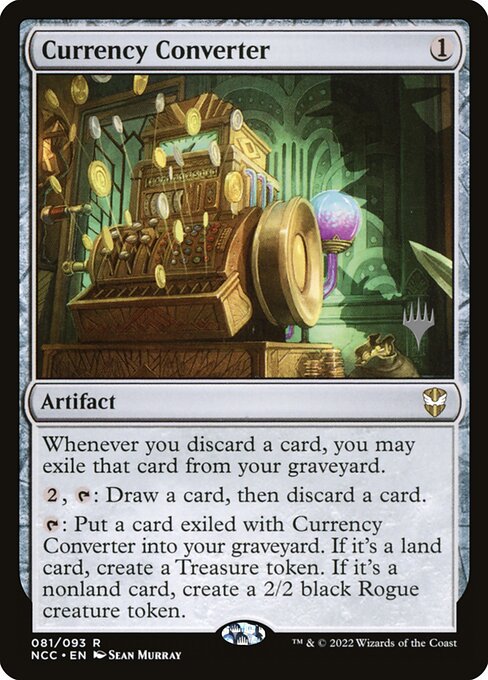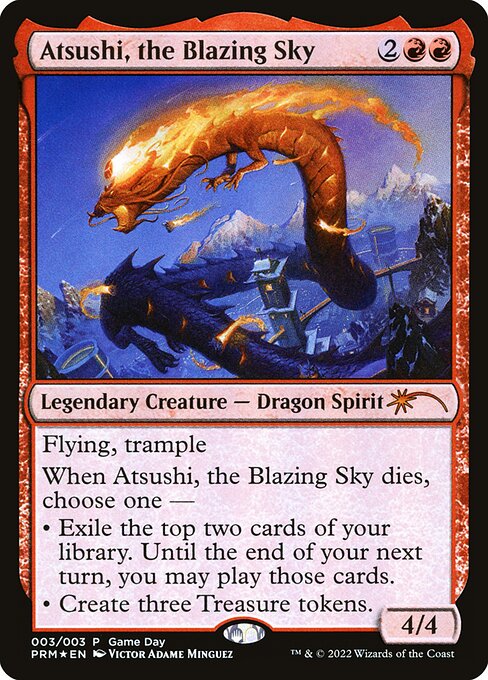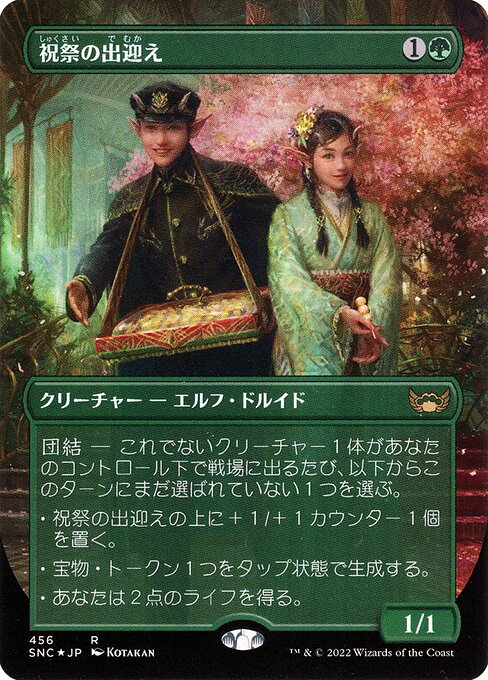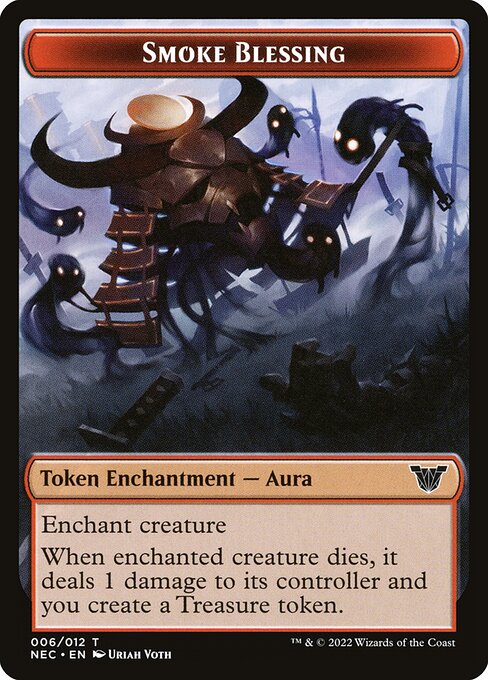Urabrask // Le grand Ouvrage
//
Créature légendaire — phyrexian et praetor // Enchantement — saga
Initiative
À chaque fois que vous lancez un sort d'éphémère ou de rituel, Urabrask inflige 1 blessure à un adversaire ciblé. Ajoutez .
: Exilez Urabrask, puis renvoyez-le sur le champ de bataille transformé sous le contrôle de son propriétaire. N'activez que lorsque vous pourriez lancer un rituel et seulement si vous avez lancé au moins trois sorts d'éphémère et/ou de rituel ce tour-ci. // (Au moment où cette saga arrive sur le champ de bataille et après votre étape de pioche, ajoutez un marqueur « sapience ».)
I — Le grand Ouvrage inflige 3 blessures à un adversaire ciblé et à chaque créature qu'il contrôle.
II — Créez trois jetons Trésor.
III — Jusqu'à la fin du tour, vous pouvez lancer des sorts d'éphémère et de rituel depuis n'importe quel cimetière. Si un sort lancé de cette manière devait être mis dans un cimetière, exilez-le à la place. Exilez Le grand Ouvrage, puis renvoyez-le sur le champ de bataille (recto visible).
À chaque fois que vous lancez un sort d'éphémère ou de rituel, Urabrask inflige 1 blessure à un adversaire ciblé. Ajoutez .
: Exilez Urabrask, puis renvoyez-le sur le champ de bataille transformé sous le contrôle de son propriétaire. N'activez que lorsque vous pourriez lancer un rituel et seulement si vous avez lancé au moins trois sorts d'éphémère et/ou de rituel ce tour-ci. // (Au moment où cette saga arrive sur le champ de bataille et après votre étape de pioche, ajoutez un marqueur « sapience ».)
I — Le grand Ouvrage inflige 3 blessures à un adversaire ciblé et à chaque créature qu'il contrôle.
II — Créez trois jetons Trésor.
III — Jusqu'à la fin du tour, vous pouvez lancer des sorts d'éphémère et de rituel depuis n'importe quel cimetière. Si un sort lancé de cette manière devait être mis dans un cimetière, exilez-le à la place. Exilez Le grand Ouvrage, puis renvoyez-le sur le champ de bataille (recto visible).
4/4
standard
future
historic
gladiator
pioneer
explorer
modern
legacy
pauper
vintage
penny
commander
brawl
alchemy
paupercommander
duel
oldschool
premodern
Rulings
If multiple players are allowed to cast the same card, the player with priority at any given time determines who can cast it. The player whose turn it is has priority as each step and phase begins, and they receive priority after each spell and ability resolves. This means immediately after chapter III resolves you’ll have priority to cast spells before any other player does.
Urabrask will count any instant or sorcery spells you’ve cast during the turn, whether those spells resolved, didn’t resolve, were countered, or left the stack some other way. Urabrask won’t count copies of instant and sorcery spells that were created on the stack and not cast.
After chapter III of The Great Work resolves, casting spells from graveyards follows the normal rules for casting those cards. You must pay their costs, and you must follow all applicable timing rules. For example, to cast a sorcery spell from a graveyard, you can do so by paying its mana cost only during your main phase while the stack is empty.
Urabrask’s second ability isn’t a mana ability, even though it causes you to add mana. It uses the stack and can be responded to.
Urabrask will count any instant or sorcery spells you’ve cast during the turn, whether those spells resolved, didn’t resolve, were countered, or left the stack some other way. Urabrask won’t count copies of instant and sorcery spells that were created on the stack and not cast.
After chapter III of The Great Work resolves, casting spells from graveyards follows the normal rules for casting those cards. You must pay their costs, and you must follow all applicable timing rules. For example, to cast a sorcery spell from a graveyard, you can do so by paying its mana cost only during your main phase while the stack is empty.
Urabrask’s second ability isn’t a mana ability, even though it causes you to add mana. It uses the stack and can be responded to.
Rulings
If multiple players are allowed to cast the same card, the player with priority at any given time determines who can cast it. The player whose turn it is has priority as each step and phase begins, and they receive priority after each spell and ability resolves. This means immediately after chapter III resolves you’ll have priority to cast spells before any other player does.
Urabrask will count any instant or sorcery spells you’ve cast during the turn, whether those spells resolved, didn’t resolve, were countered, or left the stack some other way. Urabrask won’t count copies of instant and sorcery spells that were created on the stack and not cast.
After chapter III of The Great Work resolves, casting spells from graveyards follows the normal rules for casting those cards. You must pay their costs, and you must follow all applicable timing rules. For example, to cast a sorcery spell from a graveyard, you can do so by paying its mana cost only during your main phase while the stack is empty.
Urabrask’s second ability isn’t a mana ability, even though it causes you to add mana. It uses the stack and can be responded to.
Urabrask will count any instant or sorcery spells you’ve cast during the turn, whether those spells resolved, didn’t resolve, were countered, or left the stack some other way. Urabrask won’t count copies of instant and sorcery spells that were created on the stack and not cast.
After chapter III of The Great Work resolves, casting spells from graveyards follows the normal rules for casting those cards. You must pay their costs, and you must follow all applicable timing rules. For example, to cast a sorcery spell from a graveyard, you can do so by paying its mana cost only during your main phase while the stack is empty.
Urabrask’s second ability isn’t a mana ability, even though it causes you to add mana. It uses the stack and can be responded to.
Votre collection ? vos decks ?
Envie de gérer votre collection et/ou créer des decks ?
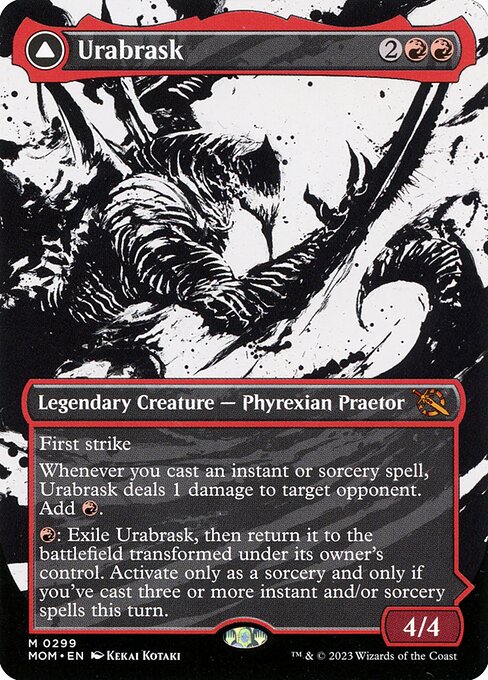

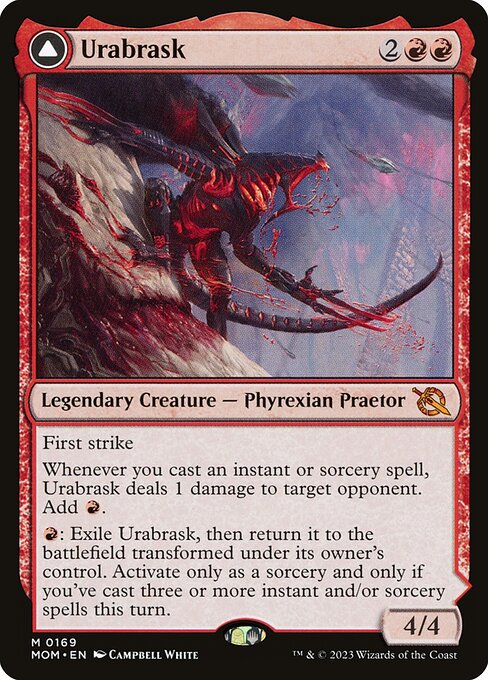
 0
0
 9.39€
9.39€
